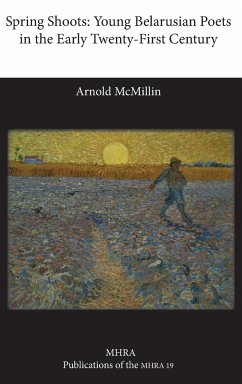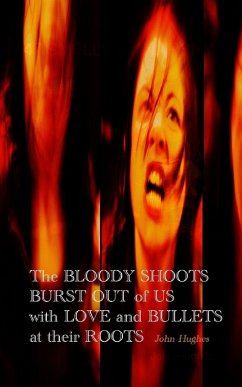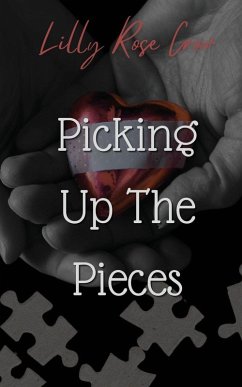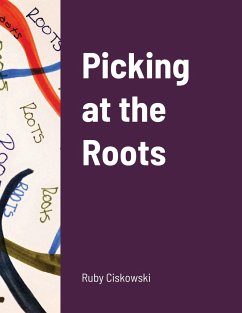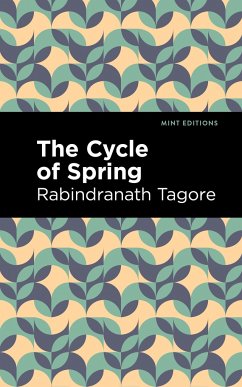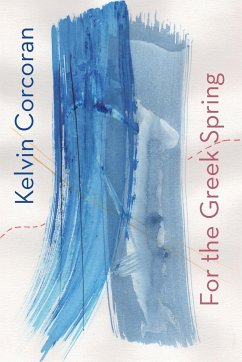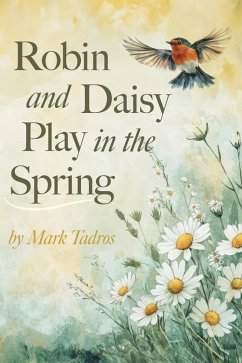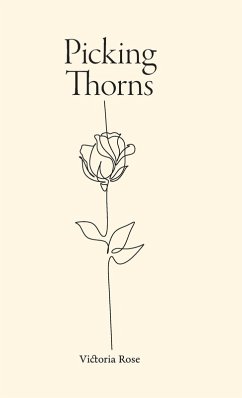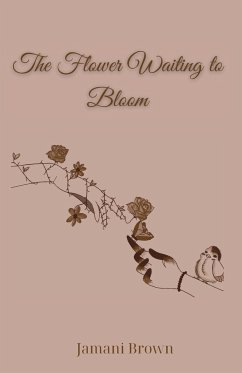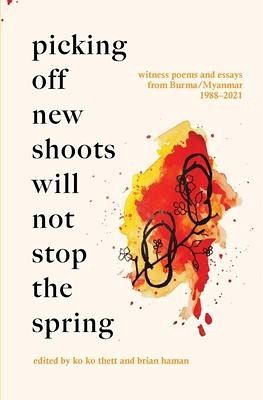
Picking Off New Shoots Will Not Stop the Spring
Witness poems and essays from Burma/Myanmar (1988-2021)
Herausgeber: Thett, Ko Ko; Haman, Brian
Versandkostenfrei!
Versandfertig in über 4 Wochen
15,99 €
inkl. MwSt.

PAYBACK Punkte
8 °P sammeln!
Fallen innocents on blood-stained streets. The defiant banging of pots and pans echoing in the darkness. The birth of a springtime revolution amidst the interrupted lives of a country and its people. On the morning of 1 February 2021, a coup d'état was initiated by the Tatmadaw, Myanmar's military, effectively overthrowing the democratically elected members of the country's ruling party, the National League for Democracy, and casting Myanmar into chaos. This volume collects the poetry and prose of the many writers, cultural figures, and everyday people on the ground in Myanmar's urban centres...
Fallen innocents on blood-stained streets. The defiant banging of pots and pans echoing in the darkness. The birth of a springtime revolution amidst the interrupted lives of a country and its people. On the morning of 1 February 2021, a coup d'état was initiated by the Tatmadaw, Myanmar's military, effectively overthrowing the democratically elected members of the country's ruling party, the National League for Democracy, and casting Myanmar into chaos. This volume collects the poetry and prose of the many writers, cultural figures, and everyday people on the ground in Myanmar's urban centres, rural countryside and in the diaspora, as they document, memorialize, or merely try to come to grips with the violence and traumas unfolding before their eyes. Written in English or translated from the original Burmese the collection includes some of Myanmar's most important contemporary authors and dissidents, such as Ma Thida, Nyipulay and K Za Win, as well as up and coming authors and poets from all over Myanmar, reflecting the country's rich cultural and ethnic diversity. In addition, poetry and essays that reflect socioeconomic life of the so-called transitional Myanmar (2010-2020), a period of relative freedom for writers when much of the censorship regime was lifted and the internet and social media were introduced in the country, as well as prominent protest poems and essays, by dissidents Min Ko Naing, U Win Tin and Min Lu, who lived through the hopes and horrors of the 1988 uprising of Myanmar are featured in this volume. A feast for the literary imagination, an elegy to those who have fallen, and a courageous act of defiance by those that continue to fight, these firsthand accounts provide an important window into a crucial moment in Myanmar's history. Review quotes: "Picking off new shoots will not stop the spring brings together for the first time in print-in translations both inspired and felicitous-poet-heros of the '88 Uprising, new voices from within the Chin, Kachin and Rohingya minorities, young poet-warriors of the ongoing armed struggle, and early martyrs of the Spring Revolution, notably K Za Win and Khet Thi. Together they raise a cri de coeur of resistance, resilience, and-through their poetry-redemption." --Wendy Law-Yone (Author of A Daughter's Memoir of Burma, Golden Parasol, The Road to Wanting, Irrawaddy Tango, and The Coffin Tree) About the Editors: Ko Ko Thett is a Burma-born poet, literary translator, and poetry editor for Mekong Review. He started writing poems for samizdat pamphlets at the Yangon Institute of Technology in the '90s. After a brush with the authorities in the 1996 student protest, and a brief detention, he left Burma in 1997 and has led an itinerant life ever since. Thett has published and edited several collections of poetry and translations in both Burmese and English. His poems are widely translated and anthologised. His translation work has been recognised with an English PEN award. Thett's most recent poetry collection is Bamboophobia (Zephyr Press, 2022). He lives in Norwich, UK. Brian Haman is a researcher and lecturer in the department of English and American Studies at the University of Vienna. He completed his PhD in literature at the University of Warwick (UK) and has studied or held research appointments in Europe, China, and the US. A book, art, and music critic, he writes widely on contemporary culture from Asia, and, since 2017, has been an editor of The Shanghai Literary Review. His forthcoming books include an anthology of contemporary Chinese-language poetry in translation as well as an edition of the unpublished works of exiled Austrian Jewish writer Mark Siegelberg.



